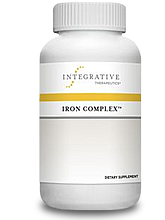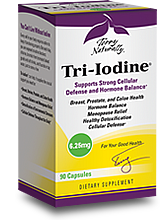Cold Intolerance in Fibromyalgia

Cold intolerance is very common in fibromyalgia. There are three main health issues that lead to this:
1. Low Iron
Thyroid hormones act as a kind of "thermostat" to regulate temperature in your body. But in order to function properly, these hormones require adequate supplies of iron in your blood. Otherwise, your thyroid hormones won’t work despite your thyroid blood testing being normal.
Ironically, the "iron" blood test is not effective for checking iron levels. To check your iron levels, ask for a ferritin test, which should measure over 60 ng/ml. If you're lower than this then you're iron deficient. Ignore the "normal range," which will say that your ferritin is normal if it's over 12. Research shows that using this normal range is, simply put, insane. A blood test called an "iron percent saturation" can also be helpful, and should be kept over 22%.
I use a form called "Iron Complex," which has numerous added components to optimize absorption and utilization of the iron. The recommended dose on the bottle is two a day, but I usually recommend taking just one.
On the other hand, be aware that too much iron in your blood can be toxic. So I would not supplement iron without checking the ferritin level. If the ferritin level comes back elevated, be sure this is also evaluated.
2. Low Thyroid
Hypothyroidism is a condition in which your body doesn't produce enough thyroid hormone. Symptoms of low thyroid hormone production include cold intolerance, fatigue and achiness. It can also lead to unexplained weight gain, as thyroid hormones determine how many of your calories get burned for energy instead of being turned into fat. Most people who benefit from thyroid supplementation will appear to have normal blood test results. So to find out if you have low thyroid levels, you might be better off simply taking a therapeutic trial of thyroid hormone to see if it helps.
Another cause of low thyroid is iodine deficiency. Iodine deficiency has become an increasingly common problem in our modern diet (particularly in the western world) due to food processing, which loses about 50% of the iodine we used to consume. Taking a good iodine supplement, such as Tri-Iodine 6.25 mg, daily for three months will usually take care of this problem, and it may help you feel better.
3. Excess Stress
Our temperature control center is in a small almond sized area in the brain called the hypothalamus. Excessive stress, along with other causes of inadequate energy production in the body, causes the hypothalamus to "go offline." Kind of like tripping a circuit breaker in the brain, taking you out of the game when energy production is unable to meet your energy needs. This problem is becoming increasingly common, and it can lead to fibromyalgia, which already affects about 12 million Americans. And as I've discussed before, most physicians aren't adequately familiar with fibromyalgia and don't know how to diagnose or treat it.
The symptoms of fibromyalgia are a paradox of being unable to sleep despite being exhausted, achy, brain fogged and cold intolerant. But it can be effectively treated, as our published research has shown. I invite you to review the numerous Helpful Tools & Resources we provide at this site that can help you begin your path to recovery.

Jacob Teitelbaum, M.D. is one of the world's leading integrative medical authorities on fibromyalgia and chronic fatigue. He is the lead author of eight research studies on their effective treatments, and has published numerous health & wellness books, including the bestseller on fibromyalgia From Fatigued to Fantastic! and The Fatigue and Fibromyalgia Solution. Dr. Teitelbaum is one of the most frequently quoted fibromyalgia experts in the world and appears often as a guest on news and talk shows nationwide including Good Morning America, The Dr. Oz Show, Oprah & Friends, CNN, and Fox News Health.


